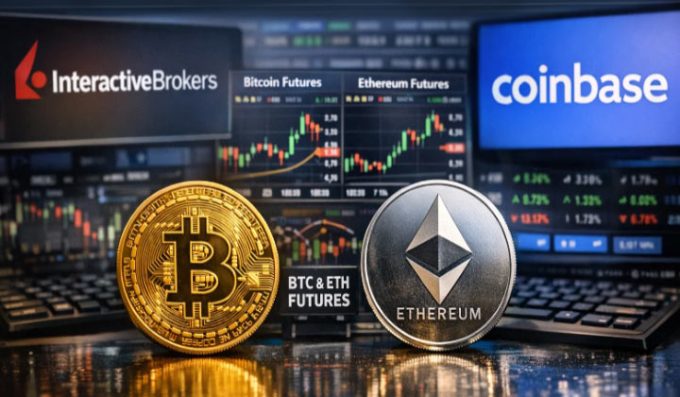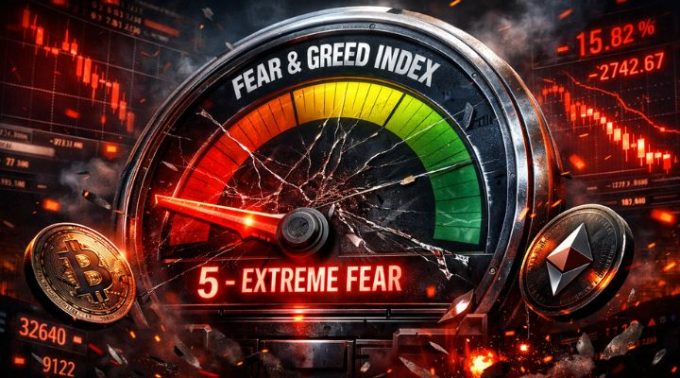Dr. Srinivasan Chari
Macroeconomic Policies and Cryptocurrency
Changes in financial markets and push into economic dialogues—most notably, when talking about their power to offset inflation—have spurred the emergence of cryptocurrencies, most especially Bitcoin. Bitcoin is drawing more investors not only for its seeming stability but also for its restricted supply, in contrast to regular currencies vulnerable to macroeconomic adjustments, as global inflation on the increase attracts.
The consequences on Bitcoin and other cryptocurrencies become clear when central banking institutions implement lax monetary controlling policies, therefore influencing market dynamics and investor opinions. Usually seen as more volatile, alternative cryptocurrencies respond differently to economic data, therefore indicating their relationship to more general macroeconomic movement.
The relationship between cryptocurrency markets and traditional financial systems can be seen in recent activities produced by economic penalties, which underscores how geopolitical elements might directly change crypto prices. The picture of Bitcoin’s overall network, as well as its combination into world finance, defines the essence of this evolving economic atmosphere.
Bitcoin Inflation Hedge: Analysing Its Response to Economic Conditions
The latest macroeconomic policy changes—most importantly, those related to inflation—have inspired analysts to reconsider Bitcoin’s function as a counterpoint to economic unrest. Often seen as a store of wealth, Bitcoin gains popularity as investors look for assets with maintaining purchasing power when money loses value.
Analysing past Bitcoin price swings in conjunction with economic data reveals a complicated relationship.
High inflation usually means investors are more interested in crypto. This interest might come from Bitcoin’s limited supply (21 million coins), which is expected to protect it from the inflation issues that fiat currencies face. Plus, as economic policies change—especially because of global economics—Bitcoin’s stability has been tested along with other cryptocurrencies.
This testing has demonstrated how different cryptocurrencies react to different economic environments and sanctions. The fact that Bitcoin fits all of these helps to strengthen the theory that it may be a practical kind of inflation hedging.
This graph shows Bitcoin’s annual closing prices from 2021 to 2025 together with the U.S. Consumer Price Index (CPI). The CPI lowers within the same period, but the data indicates clear variation in the price of Bitcoin, which generally increases. This shows a complicated link between Bitcoin and inflation, meaning that variations in the CPI do not always match how Bitcoin performs.
The Influence of Economic Indicators on Altcoins and Their Market Performance
Altcoins and Economic Indicators
In the crypto space, the interaction between economic data and cryptocurrency performance is turning into a heated issue. Many a time, very sensitive to changes in the economy, including inflation and job figures, altcoins may greatly influence investor mood and market activity.
For instance, altcoins may respond to inflation the same way Bitcoin does in order to guard against it; both would see values rise when people worry about inflation, indicating they are seen as safe havens.
Moreover, changes in government expenditure and interest rates as well as economic policies may have a significant impact on crypto markets, therefore influencing investor trading. [cited]’s graph illustrates the link between conventional markets and cryptocurrencies, therefore stressing how directly movements in stock and currency markets may influence altcoins.
Altcoins and Global Economic Trends
Generally speaking, this intricate link reveals the significance of global economic trends and how differently altcoins respond to them in most circumstances. This complex link shows the significant influence of world economic developments as well as the different reactions of cryptocurrencies to such changes.
Image1. Connections between Cryptocurrencies and Financial Markets
The Impact of Macroeconomic Policies and Economic Sanctions on the Cryptocurrency Market
In short, the impact of Macroeconomic Policies on Crypto!
The complex linkages between macroeconomic policies and the bitcoin market expose in the dynamic economic climate of today those factors that can greatly affect investor behaviour.
For example, broad monetary measures by central banks—such as decreasing interest rates or implementing quantitative easing—often drive investors towards alternative assets including Bitcoin, which they see as a potential inflation shield.
The Impact of Economic Sanctions on Crypto
As their values respond more and more to economic signs suggesting inflationary hazards, this increase in demand might produce notable changes in the price of Bitcoin and other cryptocurrencies. Simultaneously, economic penalties on nations might cause people to adopt cryptocurrencies to avoid conventional banks, therefore influencing market demand even more.
These acts help to create a society in which, especially in uncertain times, Bitcoin and altcoins are starting to play major roles in the worldwide economy. Emphasising its function as a digital asset beyond national boundaries, [quoted] presents a worldwide view of Bitcoin’s reach and highlights the larger consequences of these economic moves on the cryptocurrency scene.
Conclusion
The cryptocurrency market, especially Bitcoin and its numerous altcoin counterparts, interacts with macroeconomic policies in ways that provide helpful information about their functions as modern financial tools.
Bitcoin Response to Inflation
People increasingly view Bitcoin, in particular, as a potential inflation hedge. This is happening as central banks struggle to manage inflation and change their monetary policies, and Bitcoin’s ability to bounce back is directly related to changing economic ideas.
Further underlining this change are altcoins, which respond to global trends and economic data; many of them mirror the price fluctuations of Bitcoin and provide various means to benefiting from investor opinion on uncertain economic times.
These macroeconomic policies influence not just price changes but also people’s overall perspective on cryptocurrencies as valuable assets. Studies have also shown that economic penalties might affect crypto transactions, hence raising the desire for distributed currencies.
Like the one in [quoted], a graphic truly depicts how Bitcoin and altcoins operate globally, therefore strengthening the argument for their inclusion in international finance and support of stable economy.
Image2. Bitcoin: A Global Perspective on Cryptocurrency
References:
- Tomé, Eduardo. ‘Concept, Theories, and Management of Cryptocurrencies.’ IGI Global, 5/21/2025
- Dwayne Anderson. ‘Predict Altcoin Season Run.’ Unlock The Bitcoin Dominance Code, Estalontech, 6/2/2024
- Mr.Karl Friedrich Habermeier. ‘Virtual Currencies and Beyond.’ Initial Considerations, Mr.Dong He, International Monetary Fund, 1/20/2016
- Aleksander Berentsen. ‘Bitcoin, Blockchain, and Cryptoassets.’ A Comprehensive Introduction, Fabian Schar, MIT Press, 9/1/2020
Image References:
- Image: Connections between Cryptocurrencies and Financial Markets, Accessed: 2025. https://pub.mdpi-res.com/ijfs/ijfs-13-00024/article_deploy/html/images/ijfs-13-00024-g001.png?1739281212
- Image: Bitcoin: A Global Perspective on Cryptocurrency, Accessed: 2025. https://cdn.ainvest.com/aigc/hxcmp/images/compress-1acb63cd28020001.png
You need to login in order to Like


















Leave a comment